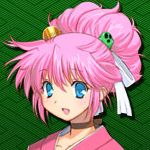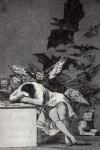Kanese S, on 21 June 2013 - 12:36 AM, said:
Orlion, on 20 June 2013 - 04:13 AM, said:
Kanese S, on 19 June 2013 - 10:23 PM, said:
I'm somewhat in agreement here. Personally I favor wide definitions. Alice in Wonderland, for instance, is fantasy. Supernatural events happen (often), the main character goes to another world, etc. It's never marketed or sold as fantasy, however. Same with much of Shakespeare, actually (though it should be noted that said works were intended to be performed, rather than read as books). Saying "involves supernatural elements" defines fantasy I think is a good definition, but one must also acknowledge that it's an incredibly broad one, bringing many works into the fantasy genre which usually aren't considered such. Not that I have a problem with that, as I think it's fine, and probably for the better.
Quote
Quote
Quote
A tougher example would be something like Middle-Earth... which to all appearances is a different world from our own... however, the author has said as much that Middle-Earth is actually part of our world in some Elder Age. Also Shannara, if I recall correctly, is hinted as being a world that developed after some post-nuclear apocalypse. So, perhaps a different 'fantastical' age would also qualify as being different enough from our world to qualify as high-fantasy. This might also explain why Arthurian tales may, at times, be high fantasy.
Haven't read Crowley's work.
I mean, with Carey, it's always pretty up front that in large part it's based on our world... but at the same time, is definitely not quite the same. In major, major ways. Things get tricky around the edges. Sure, it's easy to classify a completely different world as "High Fantasy" and one that's structurally the same except for one element that's changed as "low fantasy," but what about the middle, as you say? Carey's series takes place mainly in a region that on the map is geographically basically France, and linguistically (mostly) as well... but in culture and history is most definitely NOT France (for example... most of the other countries are like this as well). Not the best example to use, probably, but it's the one that popped into my head originally, so I'm sticking with it.
It's all right, I haven't read Carey either
At the same time, there will be works that will avoid being labeled easily or at all. Take Swift's Gulliver's Travels. It takes place in our world, but in clearly made up fictional lands with little and big folk, scientifically advanced folk, necromancers, talking horses, and Japanese! It clearly is a fantasy but I can not really define it as being high or low fantasy.... because it is by definition both *head explodes*
Quote
Agreed.
Quote
Quote
Quote
Definitely epics in the original sense. I would call them low fantasy, sense they are intended to take place in actual lands known to the Greeks.
So are Arthurian tales, or were, originally.
Yeah, I'd say the original ones and Beowulf and the Volsung saga are in the same boat. Of course, these tales get hijacked later on, particularly Arthurian legend, and each one would have to be viewed on a case by case basis....

 Help
Help















